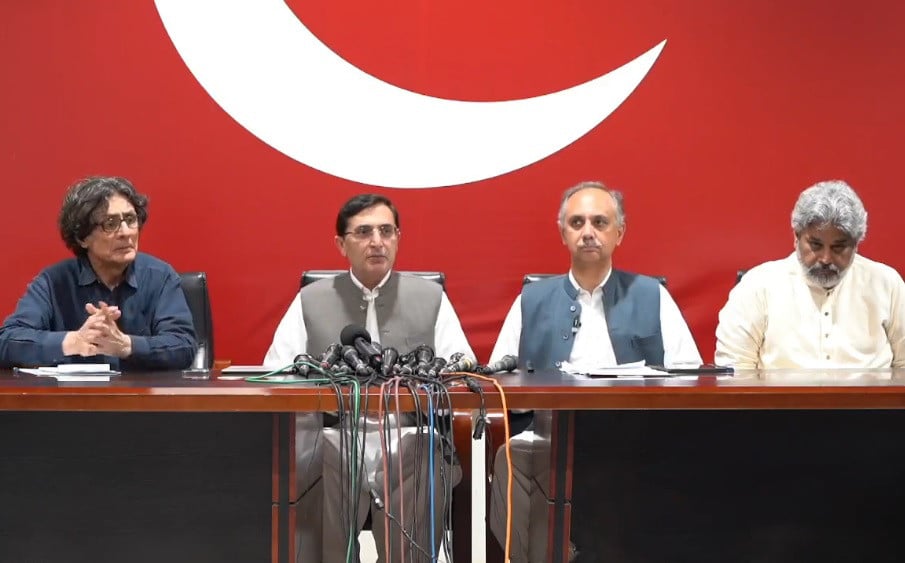Following the Supreme Court’s verdict on the reserved seats case earlier today, Pakistan Tehreek-e-Insaf (PTI) is set to become the largest party in the National Assembly, potentially increasing its numbers to 109. This unexpected legal victory declared that PTI, led by the imprisoned Imran Khan, is eligible for reserved seats allocation.
This decision facilitates PTI’s return to parliament after being excluded from the February 8 elections due to an ECP ruling in December 2023, significantly altering the National Assembly’s composition and putting pressure on the ruling coalition.
Despite PTI’s projected seat increase, the ruling coalition led by Pakistan Muslim League-Nawaz (PML-N) will maintain a simple majority with 209 members, as PML-N holds 108 seats.
The opposition in the National Assembly will grow to 120 members after PTI gains 23 reserved seats. Currently, the combined opposition, including PTI, has 97 members. PTI presently holds 86 seats in the lower house, with 84 from the Sunni Ittehad Council (SIC) and two independents—Barrister Gohar Ali Khan and Omar Ayub Khan.
The Pakistan Peoples Party (PPP) has 68 members, Jamiat Ulema-e-Islam-Fazl (JUI-F) has eight, and BNP-Mengal, MWM, and PkMAP each have one member. Meanwhile, MQM-P has 21 members, with one minority seat still suspended.
The reserved seats issue arose after over 80 PTI-backed independent candidates won in the February 8 elections and joined SIC to claim seats reserved for minorities and women.
SIC approached the ECP on February 21 for the allocation of these seats, but PTI faced a setback when the ECP, citing PTI’s failure to submit a candidate list, denied SIC’s allocation by a 4-1 verdict on March 4.
The ECP extended the deadline for submitting the priority list, but SIC did not comply, a mandatory requirement.
PTI then approached the Peshawar High Court (PHC) on March 6, which upheld the ECP’s decision on March 14. Subsequently, on April 2, SIC moved to the Supreme Court seeking to overturn the PHC verdict and allocate 67 women and 11 minority seats in the assemblies.
The reserved seats are significant as PTI-backed independents, who form the majority of opposition benches, lost 77 reserved seats in the NA and provincial assemblies due to the PHC’s verdict.
The PHC verdict, which allowed the allocation of reserved seats to the ruling coalition (PML-N, PPP, and others), led to them securing a two-thirds majority in the National Assembly.
PML-N was allocated 14 seats, PPP and JUI-F received five and three additional seats, respectively, raising PML-N’s number in the lower house to 123 and PPP to 73, while PTI-backed SIC had 82.
In the Khyber Pakhtunkhwa Assembly, JUI-F was given 10 seats, PML-N seven, and Awami National Party one.
In Punjab, PML-N received 23 seats, PPP two, and Istehkam-e-Pakistan Party (IPP) and Pakistan Muslim League-Quaid (PML-Q) one each.
In the Sindh Assembly, PPP and MQM were allocated two and one seats, respectively.
A three-member Supreme Court bench suspended the PHC’s verdict and the ECP’s decision on June 6. A 13-member full-court bench then held nine hearings on the matter, starting on June 3. The SIC’s plea was opposed by both the federal government and the ECP.
The government, through the Attorney General of Pakistan (AGP) Mansoor Usman Awan, urged the court to reject SIC’s plea, arguing that reserved seats could only be allocated to parties that contested elections and won at least one seat.
The ECP also argued that SIC was not eligible for reserved seats as it did not submit the required candidate list by the January 24 deadline. PML-N contended that SIC neither contested the elections nor provided a candidate list, and did not win a single seat, which was necessary for reserved seat allocation.
The court heard that none of the SIC members contesting for reserved seats had filed their nomination papers, which were never scrutinized, making them ineligible to contest.
